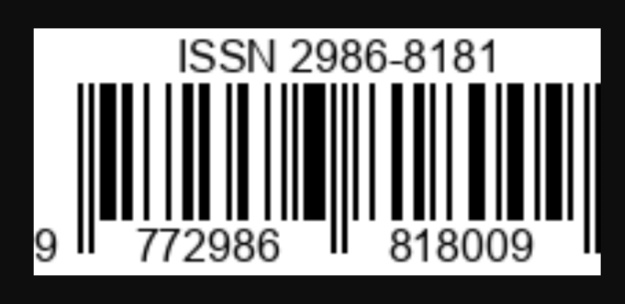Influence Of Internal And Macro Factors Islamic Bank External To Islamic Bank Mudharabah-Based Financing For MSMES
Abstract
The mudharabah system in the MSME segment is a very important part of the banking economic growth itself in a place or country in a stable environment, and therefore shapes growth and development in small to medium scale businesses both in individual and group businesses. The purpose of this study was to find out how the influence of internal and external macro factors of Islamic banks on Islamic bank mudharabah-based financing for MSMEs. This study used a qualitative research method with an exploratory research approach. The research results show that the financing that is suitable for MSME development is mudharabah financing. This is because the principle of profit sharing in mudharabah financing increases the potential for MSMEs to gain increased income, expand their business scale and diversify. In addition to contributing to internal banks and MSME players, sharia bank financing for MSMEs also plays a role in macroeconomic development. The factors that influence the allocation of sharia financing to MSMEs in Indonesia are as follows: 1) In that period FDR, NPF, inflation and exchange rates together had a significant effect on the allocation of BUS financing to MSMEs in Indonesia. 2) During this period FDR and NPF together did not have a significant effect on the allocation of BUS financing to MSMEs in Indonesia.
References
Anik et al. (2022). The Influence of Internal Factors and Macroeconomic Factors on Market Share of Bank Syariah Indonesia . Scientific Journal of Islamic Economics , 8(02), 1832-1839.
Ardana, Y. (2019). Internal Factors, Macroeconomics and Troubled Financing of Islamic Banks in Indonesia. Journal of Business and Management , 9(1), 41 – 56.
Beik, Irfan Syauqi. (2007). Islamic Banks and Development of the Real Sector. Jakarta: pesantrenvirtual.com
Fadjriah, Siti Ch. (2007). The sharia system is more suitable for SME financing. Accessed from http://www.bisnis.com on 18 May 2012
Firdaus, RN (2015). The Influence of Internal and External Factors Affecting Problematic Financing in Islamic Commercial Banks in Indonesia. El-DInar, 3(1), 82–108.
Imaduddin, Muhammad. (2005). The Entrepreneur's Sharia Bank. England: Leicestershire. Accessed from www.pesantrenvirutal.com on 16 May 2012
Imaduddin, Muhammad. (2005). Mudharabah and Optimization of the Real Sector. Accessed from www.republika.co.id on 18 May 2012
Istiqomaha, Shafira Nur, et al. (2021). Macroeconomic and Bank Specific on Profitability: The Case of Islamic Rural Banks in Indonesia. Review of International Geographical Education , 11(4): 495-502; ISSN 2146-0353
Mohammed. (2004). Profit Sharing and Profit Margin Calculation Techniques in Islamic Banks. Yogyakarta: UII Press.
Munkadi et al, (2005). Development of Small and Medium Enterprises Cooperatives (UKM), Indonesian Cooperatives, 2005, p.26.
Nafis, Rifqi & Heri S. (2021). Factors Influencing Mudharabah Financing in Islamic Commercial Banks in Indonesia. Scientific Journal of Islamic Economics , 7(01), 164-173.
Nurhidayat. (2020). Islamic Economic Approach in Solving Economic Problems Due to the COVID-19 Pandemic. ISLAMIC BANKING ; Journal of Islamic Banking Thought and Development , 6(1), 17–34.
Qoyum, A., & Fauziyyah, NE (2019). The Halal Aspect And Islamic Financing Among Micro, Small, And Medium Enterprises (Msmes) In Yogyakarta: Does Berkah Matter? Journal of Islamic Monetary Economics and Finance , 5(1), 215–236. https://doi.org/10.21098/jimf.v5i1.1055
Sahyouni, A., & Wang, M. (2018). The Determinants of Bank Profitability: Does Liquidity Creation Matter? In SSRN Electronic Journal . https://doi.org/10.2139/ssrn.3125714
Setiawan, I. (2017). The Role of Islamic Banking on the Economy in Indonesia (VAR/VECM Model Approach). Tedc , 11(2), 172–178 .
Setiawan, I. (2019). The Role of Islamic Banking in the Development of Economic Sectors in Indonesia. International Journal of Applied Business Research, 1(02), 88–99. https://doi.org/10.35313/ijabr.v1i02.70
Setiawan, I. (2020). Analysis of the Role of Banking on Economic Growth in Indonesia: Islamic Banks Versus Conventional Banks. Journal Accounting, Economics And Business Management, 8(1), 52–60. https://doi.org/10.30871/jaemb.v8i1.1649 .
Setiawan, I. (2021). MSME Financing, Performance of Islamic Banks and Economic Growth in Indonesia, : Journal of Islamic Banking Thought and Development, 6 (2). 263-277.
Suryakusuma & Asri. (2018). The Impact of Macroeconomics and Internal Factors on the Financial Performance of Islamic Commercial Banks in Indonesia. Journal of JWEM STIE MIKROSKIL. 8(2). 173-182.
Vijaya, Krishna. (2005). Micro Credit is Not a Grant. Compass Daily. Tuesday March 1, 2012
Wiratna Sujarweni, V. (2015). Business and economic research methodology. Yogyakarta, Library





